When thinking of Soweto, South Africa's most famous township, our minds often go to the history of struggle and resistance during the apartheid era – but there was also joy, creativity, and community thriving, even in those challenging times. The historic Eyethu Cinema, now reopened as Eyethu Heritage Hall, was at the heart of that golden era: a beacon of togetherness when it was needed most. Founded in 1969 by Ephraim Batana and Caroline Kinini Tshabalala in Mofolo Central, Soweto, Eyethu wasn’t just a cinema – it was a stage for black excellence, style, storytelling, music, and community life. Today, the family-run Eyethu Heritage Hall keeps that spirit alive, with colourful exhibits, cultural events, and a living legacy that continues to inspire and teach new generations.
Eyethu Cinema: A space for black excellence, creativity, and community
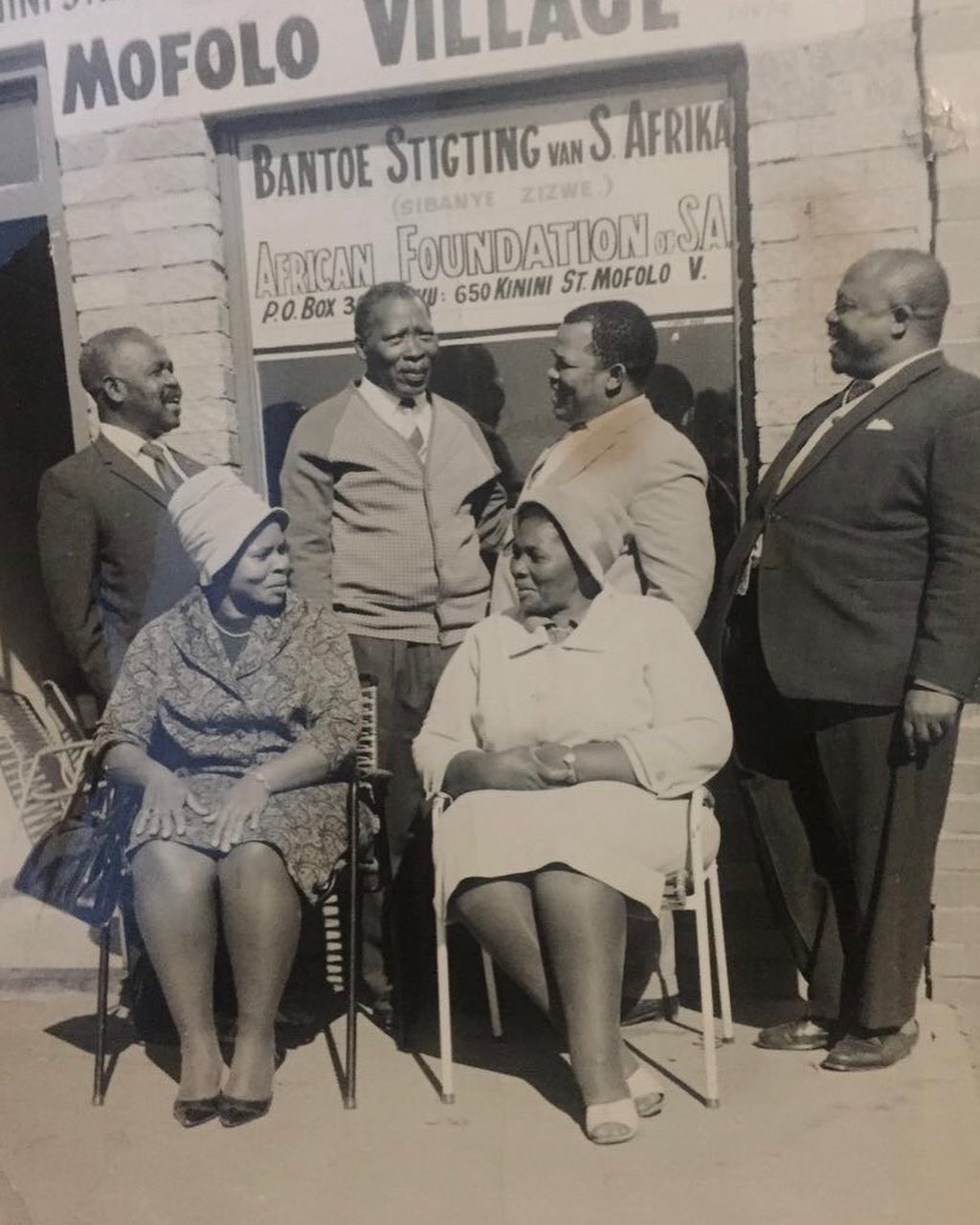
in Mofolo Village, Soweto. Photo: Eyethu Heritage Hall.
A HISTORIC FAMILY
From humble beginnings on a farm and with little formal education, dynamic husband and wife Ephraim Batana (E.B.) and Caroline Kinini (C.K.) Tshabalala worked tirelessly, saving every penny to build and open Eyethu Cinema in Soweto on Aug 30, 1969.
Ephraim’s bold entrepreneurial vision, paired with Caroline’s sharp financial savvy, laid the foundation for one of the country’s most successful black-owned business empires – creating jobs, uplifting communities, and inspiring generations. The couple became self-made millionaires with a retail empire that included garages, bottle stores, fish and chips outlets, supermarkets, and dry-cleaning depots, as well as the famous Eyethu Cinema.
The Tshabalalas have always moved with intention, their influence spanning family, politics, community life, and culture. One of their most memorable moments was Ephraim and Caroline’s son, Vusi, marrying Princess Dlalisile, daughter of King Sobhuza II of Swaziland. It was a wedding that brought royalty to Soweto with 5,000 guests, helicopters, and a declaration of freedom that inspired pride in the township.
Beyond their dazzling celebrations, the Tshabalala family was deeply committed to public service. Twice elected mayor under the Sofasonke civic association – founded by community leader and “father of Soweto” James Mpanza – Ephraim Tshabalala worked tirelessly to uplift the township. In the 1970s, he confronted a deepening housing crisis as the West Rand Administration raised rates and pushed accommodation beyond the reach of many Sowetans. His leadership helped shape the township’s future with purpose and vision.
By the late 1980s, Tshabalala also played a pivotal role in the Orange Farm migration. Overcrowded in Soweto and weary of forced removals, thousands of families answered his rallying call for “a new paradise.” Although negotiations with the now-defunct West Rand Administration Board faltered, Tshabalala led the relocation of homeless residents from Mshenguville to what would become Orange Farm, officially established in 1989. Within just two years, the settlement had swelled to over 70,000 people, its growth driven by poverty, squatting, and defiance of apartheid eviction orders – transforming Orange Farm into both a refuge and a living act of resistance.
SOWETO'S EYETHU CINEMA
Eyethu Cinema was one of South Africa’s first black-owned cinemas at a time when such dreams were nearly impossible. Yet it was more than a place to watch films – it was a hub of black excellence, storytelling, and cultural pride. It showcased the latest Hollywood films like The Wild Geese but also highlighted black talent on screen, giving actors leading roles in films like Joe Bullet, the first South African film to feature an all-black cast and cater to a black audience, even when apartheid-era censors tried to shut it down.
The cinema also hosted international and local musical acts, helping launch careers for stars spanning Brenda Fassie in her theatre days to Mama Yvonne Chaka Chaka and Sipho "Hotstix "Mabuza, whose career journey stretched from the Beatles to Harare.
Eyethu Cinema was a stage for pageants, a safe leisure space for children, and a vibrant community hub for dates, friendships, and cultural exchange, as well as community fundraisers and even funerals. Its events are said to have inspired the early iterations of what we now know as the Rand Show, with kiddies’ clubs and entertainment rides offering a refuge for young people in the heart of Soweto. We've also heard many a tale of couples who met in this space.
Lerato Tshabalala-Mini, the granddaughter of Ephraim and Caroline Tshabalala (Mkhulu and Gogo to her) says, "A core principle that Mkhulu had, and that I aim to continue and to drive, is the wholesome leisure of black people. He didn't put on gangster movies and so forth. It was always about wholesome entertainment and seeing black people in a positive light."
Reimagined: The Eyethu Heritage Hall
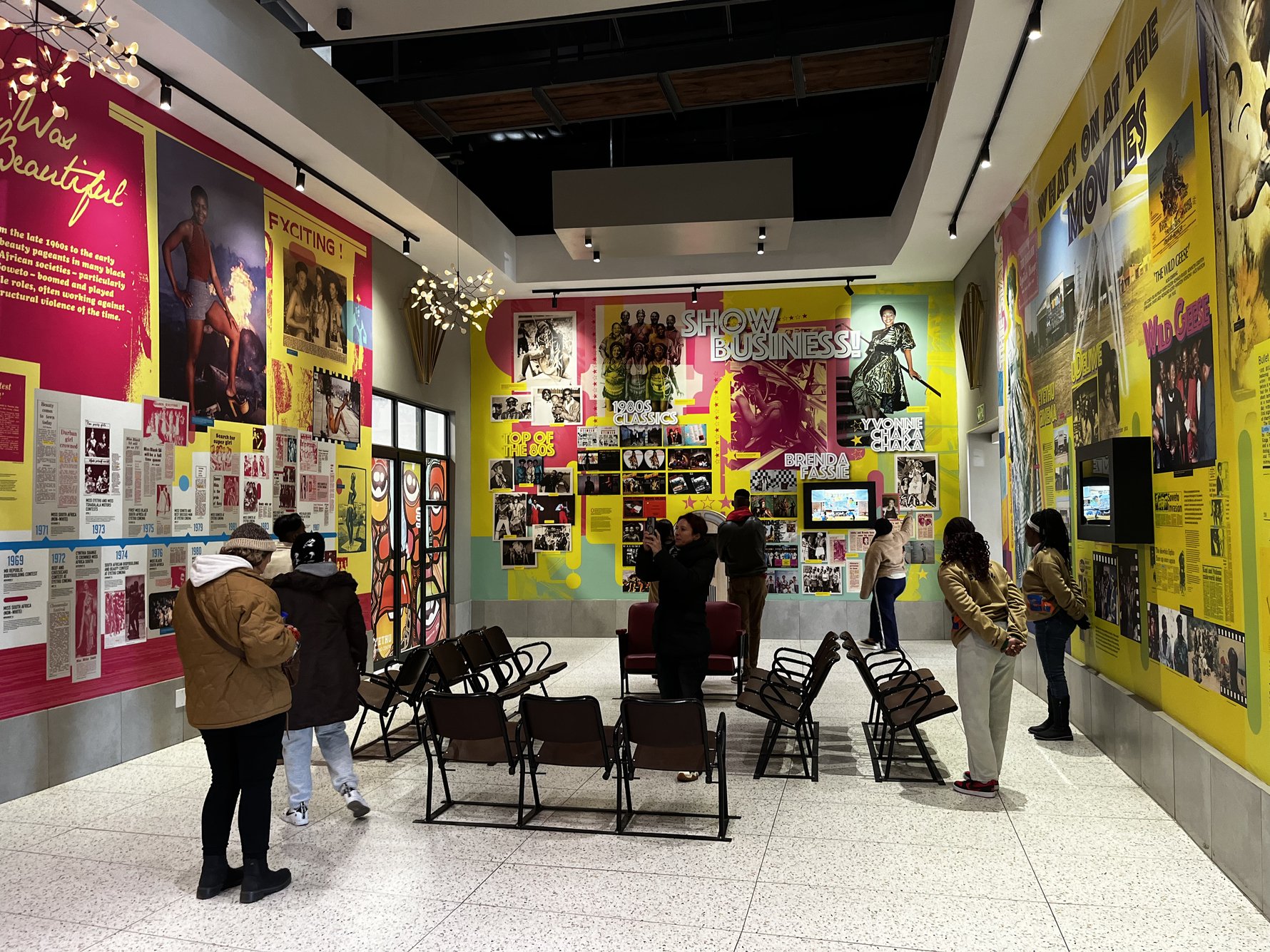
In the 1990s, the cinema faced challenges due to competition from multiplexes, leading to its closure. Today, the spirit of Eyethu Cinema lives on through the family-run Eyethu Heritage Hall – a cultural venue on the first floor of Eyethu Shopping Centre in Mofolo Central, where the cinema used to be. Managed by the Tshabalala family, Eyethu Heritage Hall honours the cinema’s legacy with colourful pop-art-style exhibits that capture its golden era – highlighting the people of prominence who passed through its doors, the community events that took place there, and the wide-ranging impact of the Tshabalalas in Soweto, and Johannesburg, at the time.
It's unusual to find a museum space like this within a predominantly retail setting, yet it positions the Hall in the centre of a heavily foot-trafficked area, making it visible and accessible to passers-by. If you're walking or driving past, you can't miss it – a colourful mural by renowned Soweto-based artist Senzo Nhlapo adorns the building's original facade.
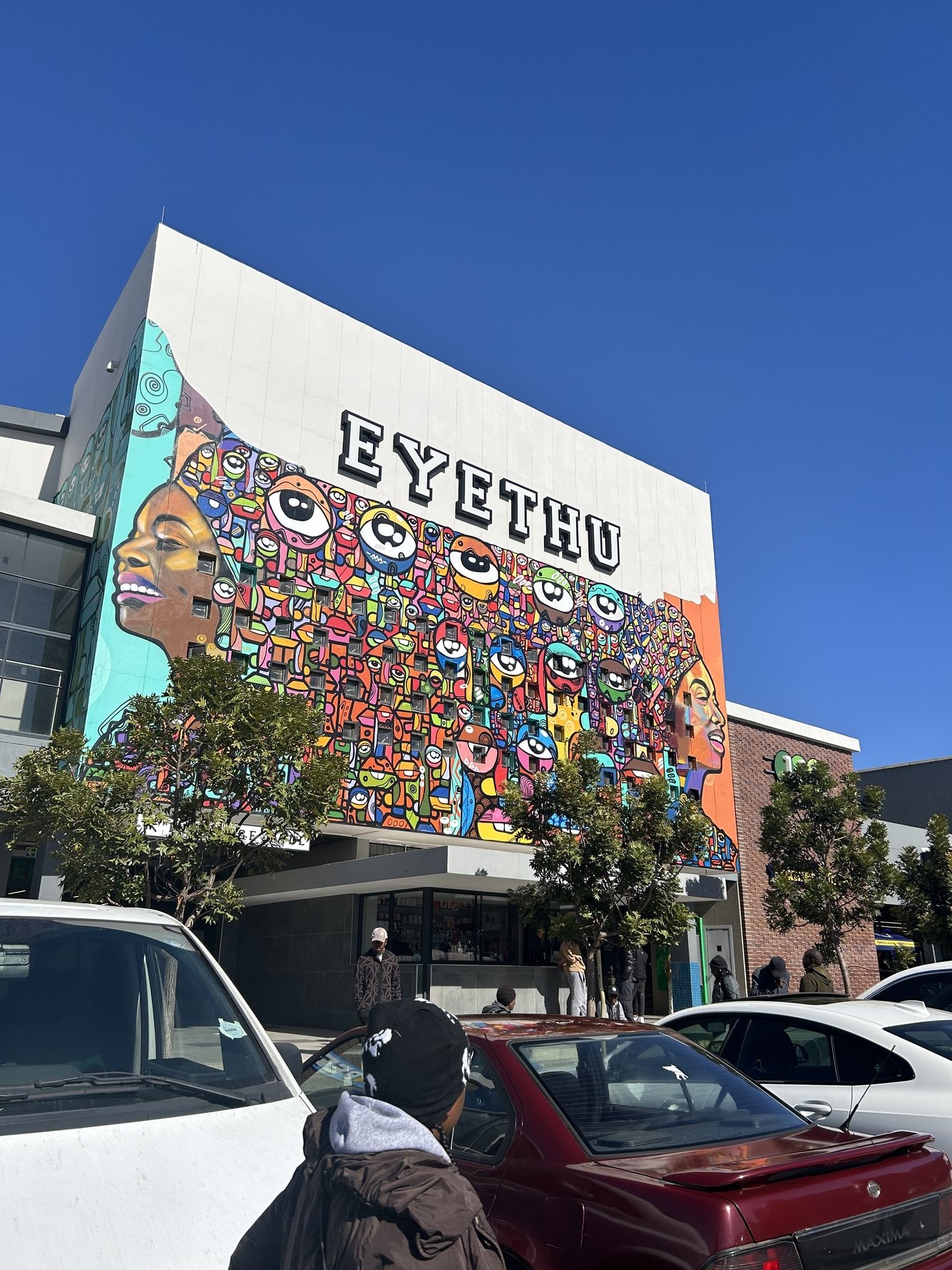
Step inside Eyethu Heritage Hall, and the walls proudly hold stories of the past. With a bright and youthful atmosphere, the space brings history to life while celebrating the profound impact of Eyethu Cinema on the community. Old newspaper archives have been unearthed to ensure every story is fact, not myth. Colourful displays trace the family’s journey and showcase the cinema’s legendary music line-ups, featuring local and international artists like Percy Sledge, The Staple Singers, The Commodores, and Brook Benton. The walls also highlight beauty pageants, male bodybuilding competitions, and countless community events.
"Soweto’s history is not only about struggle," Tshabalala-Mini tells us, "but also about everyday creativity, resilience, and culture. I want people to see how art, music, and community spirit shaped Mofolo Central – and still live strongly today."
Eyethu Heritage Hall forms part of what Tshabalala-Mini is coining as the Soweto Art Mile – a route that highlights Soweto’s vibrant artistic heritage and contemporary culture, from South African politician Robert Sobukwe’s home to Inside-Out Music Jams and the historic Mofolo Art Centre, one of the few spaces that showcased township artists during apartheid, and where artist Kenny Nkosi still has his studio.
Tracing a family legacy
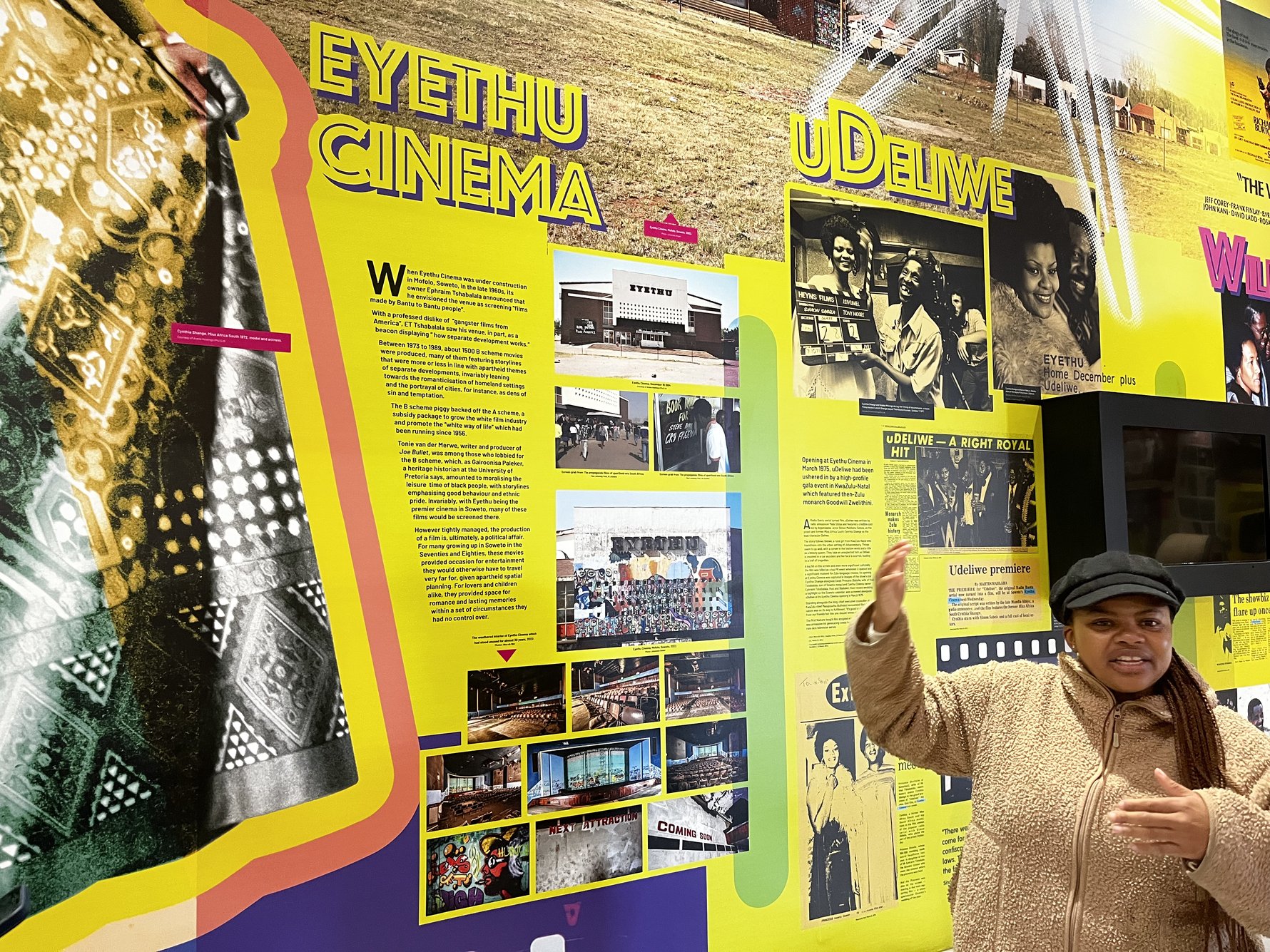
Tshabalala-Mini is actively involved as Eyethu's project manager, showing us around the revamped Heritage Hall (June 2025) ahead of its official launch. Hearing her first-hand stories about Mkhulu Ephraim and Gogo Caroline, as they are affectionately known, gave us a heartfelt, intimate glimpse into the lives behind the legacy.
As a third-generation Tshabalala, with a fourth already coming up, Tshabalala-Mini grew up surrounded by the stories and impact of her grandparents without fully grasping their magnitude. It wasn’t until high school that the weight of her family’s influence truly landed. A teacher asked her who she was and where she came from, and suddenly Tshabalala-Mini realised she was part of something much bigger: a family whose businesses, generosity, and cultural contributions shaped communities across Soweto and beyond. Later, seeing the enormous turnout at her grandfather’s funeral in 1994 made the scale of their impact even more tangible.
"Why we say 'our story, your space'," she says, "is because every day here, I’m still learning – from the walls, the people, and the history that surrounds me."
Plan your visit to Eyethu Heritage Hall
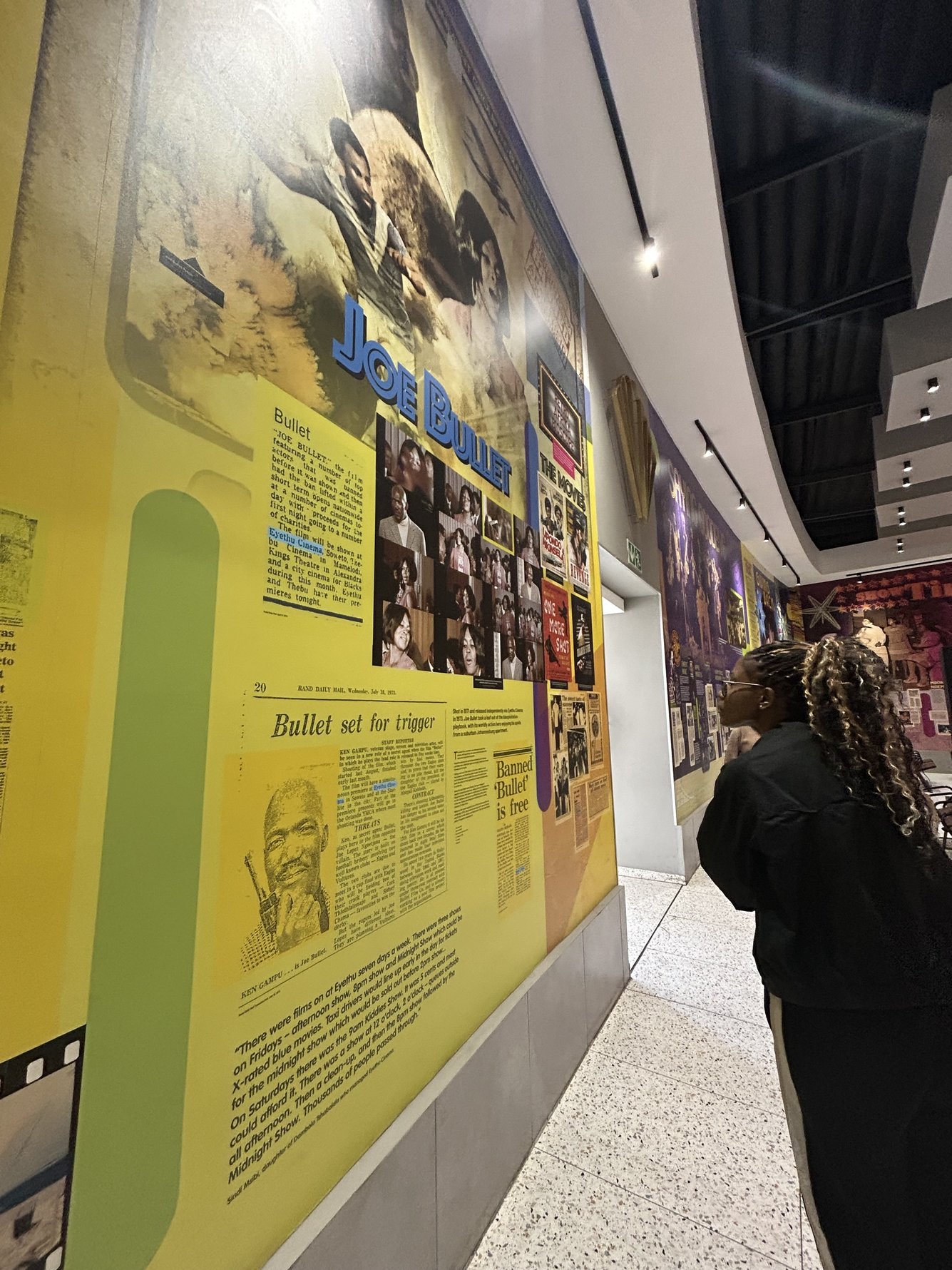
Today, the Eyethu Heritage Hall serves as a venue for exhibitions, community gatherings, award ceremonies, and more.
Guided tours cost R50 per person (local adults), R100 per person (international adults), R30 per person (students and pensioners with a valid ID), R30 per person (teens aged 12–18), and R10 per person (children under 12). Book a tour via email at info@eyethuheritage.co.za or WhatsApp on +27 76 546 6599. You can also visit it with Thabo the Tourist as part of his Soweto Art Tour.
Find Eyethu Heritage Hall at 113 Machaba Dr, Mofolo Central, Soweto
Open Tue – Sat from 09:00 – 16:00
Follow @eyethuheritagehall on Instagram for details of upcoming events.
STEP INTO SOWETO'S STORY WITH JOZI MY JOZI WALKS 2025
As one of 15 community-led neighbourhood walking tours, Tshabalala-Mini joins the Jozi My Jozi Walks chorus for 2025 to showcase Eyethu Heritage Hall as one stop along Soweto's Art Mile. Each stop on the route tells a story of Soweto’s resilience and creativity. From Thesis Lifestyle in Mofolo – the trailblazing streetwear store that’s been repping Soweto style since 2008 with its cult-favourite slogan tees and bucket hats to historic landmarks like Robert Sobukwe’s home, Eyethu Heritage Hall, and the soulful Inside-Out Jazz Lounge. The journey continues with a pause at Five Roses Bowl – a popular outdoor concert venue – in Mofolo Park, before culminating at the Mofolo Arts Centre, once a lifeline for township artists during Apartheid and a buzzing hub of creativity throughout the 1970s and 80s.Along the route, food, crafts, and music bring the history of Mofolo Central to life, with choral and local brass band performances, poetry, jazz, and a market activating the cultural spaces. "This tour is all about getting involved," Tshabalala-Mini says. "We are not gonna just listen, we're gonna participate." To join the tour on Sun, Sep 28, 2025 from 14:00 – 16:30, book your tickets here.


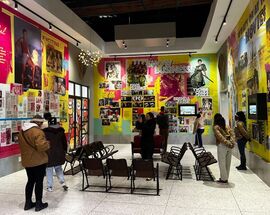
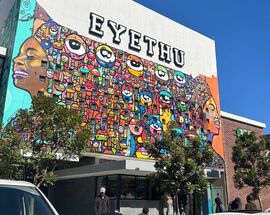
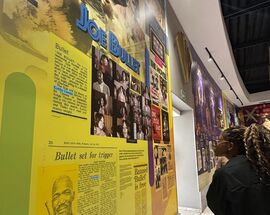



Comments